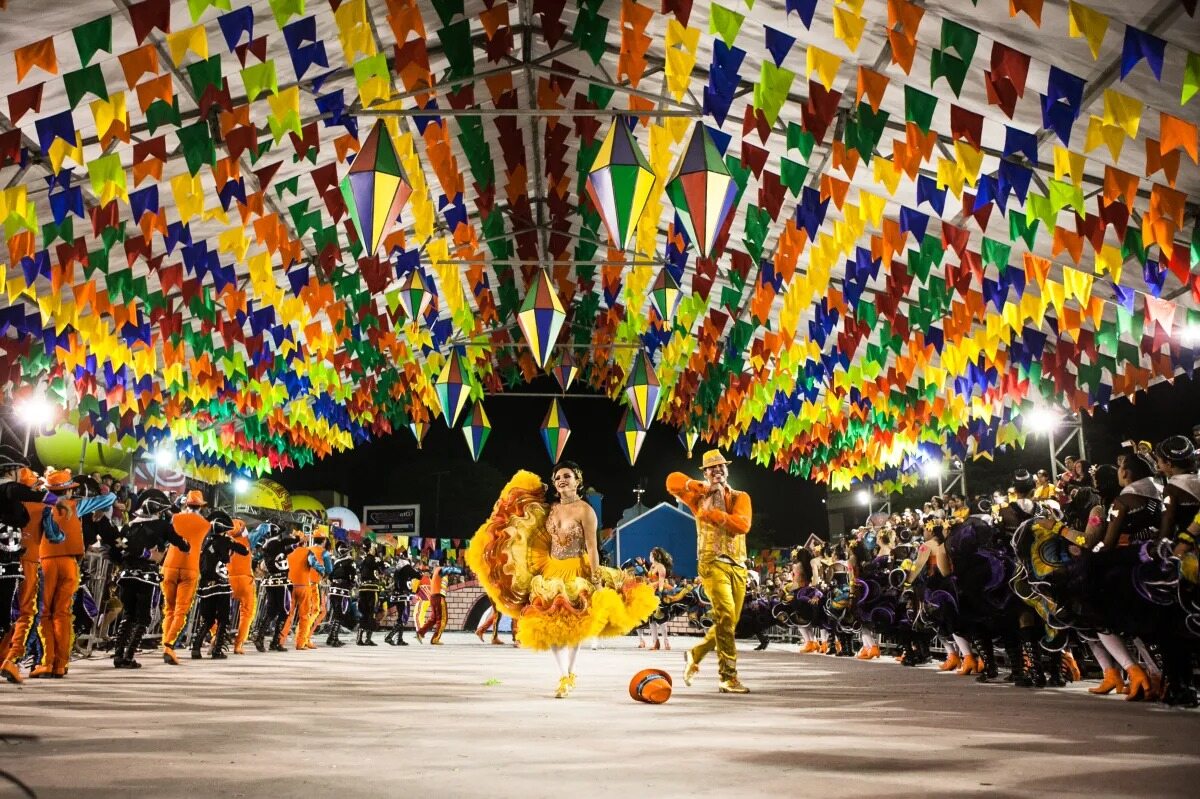10 Surprising Facts About Festa Junina In Brazil

Have you ever heard of Festa Junina? This vibrant Brazilian festival, celebrated every June, is full of colorful traditions, lively music, and delicious food. Originating from European Midsummer festivities, it has become a unique blend of cultural influences. People dress in traditional rural attire, dance the quadrilha, and enjoy treats like pamonha and canjica. Bonfires light up the night, and fireworks add to the excitement. Whether you're a fan of folk dances or just love a good party, Festa Junina offers something for everyone. Ready to learn more about this amazing celebration? Let's dive into 10 surprising facts about Festa Junina in Brazil!
What is Festa Junina?
Festa Junina, also known as the June Festival, is a traditional Brazilian celebration that takes place throughout the month of June. It honors Saint Anthony, Saint John, and Saint Peter. This vibrant festival is marked by colorful decorations, folk dances, and delicious food. Let's dive into some surprising facts about this lively event.
The Origins of Festa Junina
Festa Junina has deep roots in Brazilian culture, but its origins might surprise you. Here are some interesting points about where it all began.
European Influence: The festival was brought to Brazil by Portuguese colonizers. It originally celebrated the summer solstice in Europe but adapted to Brazilian culture over time.
Catholic Traditions: It honors three Catholic saints: Saint Anthony, Saint John, and Saint Peter. Each saint has a specific day dedicated to them in June.
Agricultural Roots: Initially, it was a way to give thanks for the harvest. Farmers would celebrate the end of the rainy season and the beginning of the dry season.
Unique Festa Junina Traditions
The festival is known for its unique customs and traditions. Here are some that make it stand out.
Quadrilha Dance: A traditional folk dance that mimics a mock wedding. Participants dress in rural costumes and perform choreographed steps.
Bonfires: Lighting bonfires is a common practice. It symbolizes the warmth and light of the saints being honored.
Costumes: People dress in rural attire, often with straw hats, checkered shirts, and patched pants. This pays homage to Brazil's countryside.
Delicious Festa Junina Foods
Food plays a significant role in Festa Junina. The festival offers a variety of traditional dishes that are both tasty and unique.
Pamonha: A sweet or savory dish made from corn paste, wrapped in corn husks, and boiled. It's a must-try during the festival.
Canjica: A creamy dessert made from hominy corn, milk, sugar, and cinnamon. It's often served warm and is incredibly comforting.
Quentão: A hot drink made from cachaça (a Brazilian spirit), ginger, cinnamon, and cloves. It's perfect for warming up on a chilly June night.
Fun and Games at Festa Junina
The festival isn't just about food and dance; it also includes various games and activities that add to the fun.
- Pau de Sebo: A greasy pole climbing game where participants try to reach a prize at the top. It's slippery and challenging but always entertaining.
Festa Junina is a celebration full of life, color, and joy. Whether you're dancing the quadrilha, enjoying a warm quentão, or trying your luck at pau de sebo, there's something for everyone to enjoy.
Festa Junina: A Celebration Like No Other
Festa Junina is more than just a festival; it's a vibrant celebration of Brazilian culture. From the colorful costumes to the traditional dances, every aspect of this event is steeped in history. The delicious food like pé-de-moleque and canjica adds a unique flavor to the festivities. The quadrilha dance brings communities together, making everyone feel like part of a big family. Even the bonfires have a special significance, symbolizing warmth and unity. This festival offers a glimpse into Brazil's rich traditions, making it a must-see for anyone interested in experiencing authentic Brazilian culture. Whether you're a local or a visitor, Festa Junina provides an unforgettable experience filled with joy, music, and delicious treats. So, mark your calendar and get ready to immerse yourself in one of Brazil's most cherished celebrations.

